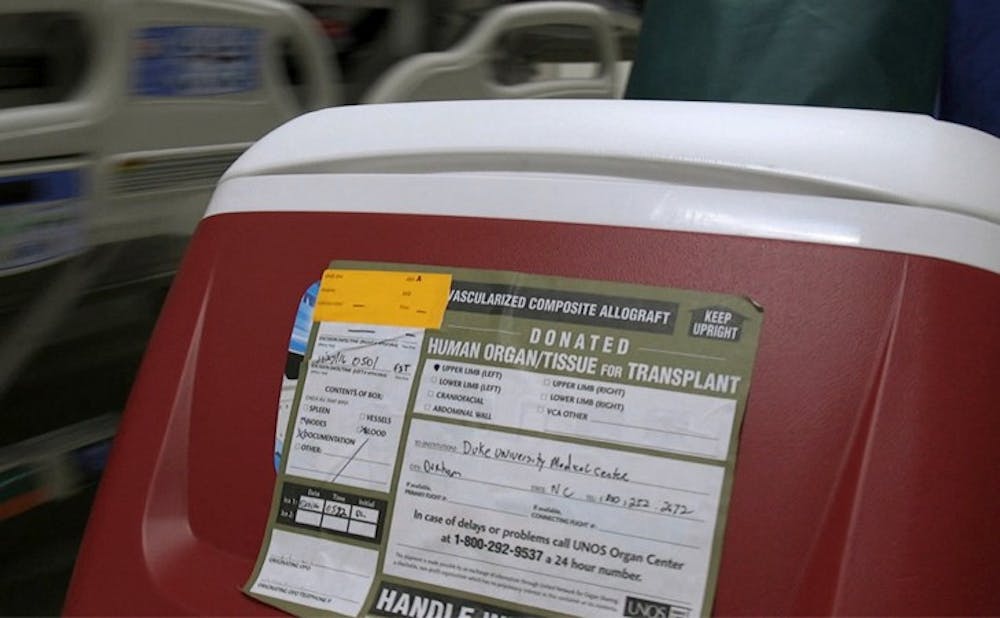The Scientific Registry of Transplant Recipients recently named Duke Hospital as the best U.S. medical center for liver transplantations in 2016.
Duke’s liver transplant program—which was established as the first liver transplant center in North Carolina in 1984—has performed more than 1,000 transplant procedures, including 96 between July 2015 and June 2016. In both number of patients served and quality of care, Duke greatly outranks other facilities in the region, according to the SRTR.
With its efficient delivery system, Duke moves patients off the transplant waitlist more than 2.5 times faster than the national average, with a waitlist mortality of only 13.9 out of 100 patients per year.
After just one year on the waitlist, 72.5 percent of Duke patients receive their transplant, exceeding the U.S. average of 42.1 percent.
“This is extremely important to patient outcomes,” said Dr. Stuart Knechtle, executive director of the Duke Transplant Center and a liver transplant specialist. “These are very sick people, and the reality is that patients die on the waiting list if they have to wait too long.”
Liver transplantation is typically suggested for patients with end stage liver disease, which is brought on by a variety of chronic illnesses. Before being added to the waitlist, patients undergo a screening process, which involves a medical, social, financial and psychiatric evaluation. All cases at Duke are then reviewed by a hospital committee.
Once patients are approved, they are listed through the United Network for Organ Sharing, with the sickest patients given priority. Donated organs are allocated based on a regional system, meaning that Duke receives most of its organ donations from North Carolina and the surrounding states.
Apart from Duke’s expedited transplant timetable, Knechtle said he also attributes Duke’s high ranking to successful, long-term patient outcomes.
“Long term outcomes, the one and three-year survival rates, which are greater at Duke than everywhere else, reflect the commitment of the entire continuum, from the coordinators, hepatologists, surgeons, psychologists, social workers and nurses—it is a reflection of the Duke community.” Knechtle said.
With a reported success rate of 94.6 percent one year after transplantation, Duke received an outcome assessment score of 5 in 2016, which is the highest level possible from the SRTR.
Clinical research studies and innovative technologies have also contributed to Duke’s optimal patient outcomes, Knechtle said. This may increase the number of viable donations in the future.
“Preservation [of livers] in the past has used cold storage, where the donated organ is flushed with [a special solution] and kept on ice to slow down the metabolic rate of the organ,” Knechlte said. “However, there is evidence that cooling and rewarming damages organs and cells.”
Knechtle noted that Duke faculty are currently exploring an alternate storage system for livers, with broader potential applications for heart and lung transplants.
Duke's specialized physician recruitment has also reinforced the strength of its transplantation program, Knechtle explained.
“This is a highly sophisticated academic medical center with tremendous expertise across all disciplines," he said. “We really specialize in multidisciplinary complex care as well as clinical and basic research. We are at the forefront of medical developments in transplantation and will continue advancements into the future.”
Get The Chronicle straight to your inbox
Signup for our weekly newsletter. Cancel at any time.

